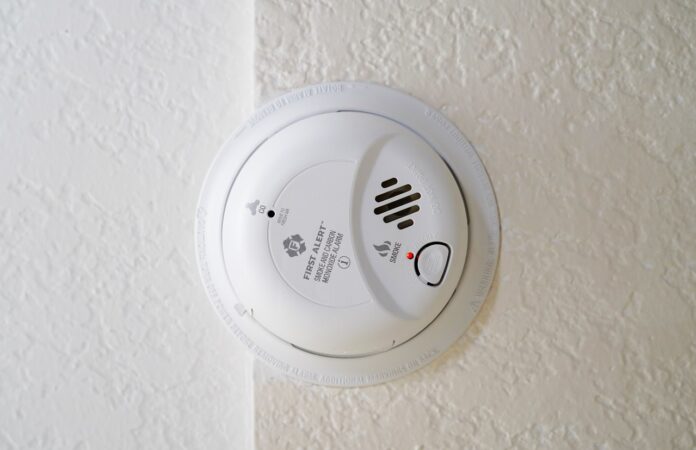Along with getting an extra hour of sleep, fire crews say that you should use the shift as a reminder to check the batteries on your smoke detector.
North Cowichan Captain of Fire Prevention education Greg McRae says smoke alarms save lives, since a small fire in a home can produce life threatening conditions in as little as three minutes.
“Working smoke alarms have proved that they are essential,” says McRae. “They are very effective in terms of notifying people to get out of the house.”
McRae says that many new buildings have their smoke alarms hard wired in, without a battery, but if yours still is battery operated, this is the time to swap it out. He says smoke alarms should be tested monthly.
“Check your batteries twice a year. When the clock changes, change your batteries,” he says. “And smoke alarms expire every ten years.”
The Alberta Fire Chiefs Association (AFCA) says that many fatal fires start at night and that smoke fumes can actually put you into a deeper sleep. They say that often victims of fatal fires just don’t wake up and that’s where smoke alarms come in.
The association also says that smoke is the number one cause of fire-related deaths.
“Smoke carries poisonous gases such as carbon monoxide, hydrogen cyanide, sulphur dioxide, and hundreds of other toxic substances,” reads informational materials from AFCA. “Over 100 people die every year in Canada as a result of fires.”
This year’s fire prevention message is safety in the kitchen. McRae says that kitchen fires can start in a variety of ways.
“Cooking fires are one of the major causes of structure fires,” he says. “Grease fires, unattended cooking, accidents when something spills can cause burns. We have a large number of those, especially with children. Burns are easily caused by hot coffee and hot tea and things like that. We encourage children not to play in the kitchen.”
He says it’s also important to build an escape plan with everyone in the home should disaster strike.
“We also encourage people to have an emergency escape plan,” says McRae. “We encourage them to develop one so that in the event of fire they can get out of the house with their plan.”






